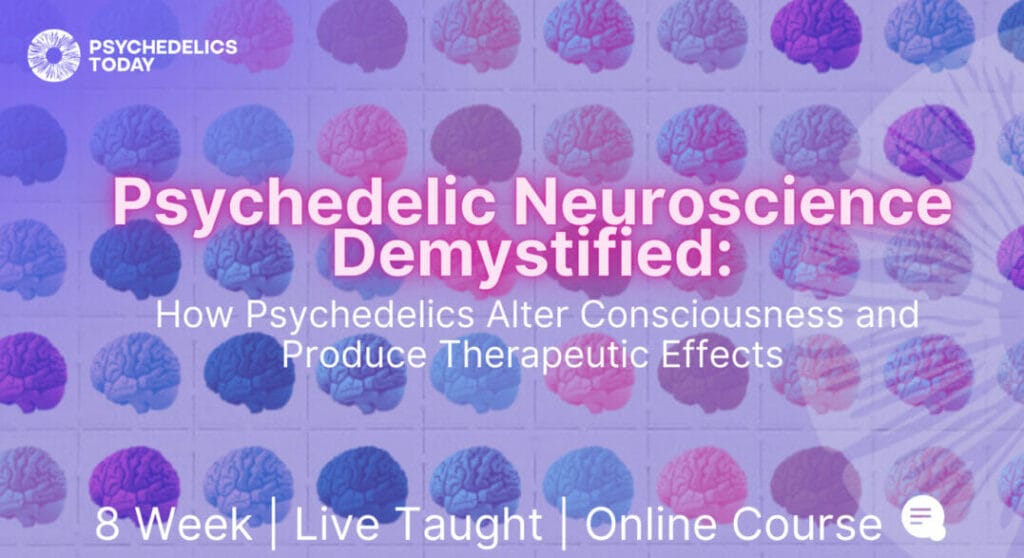
Research
PT452 – Metaplasticity, Reopening Critical Periods, and Octopuses on MDMA
October 17, 2023
Featuring: Gül Dölen, MD, Ph.D.
In this episode, Melanie Pincus, Ph.D. and Manesh Girn, Ph.D. once again take over hosting duties, this time interviewing Gül Dölen, MD, Ph.D.: Associate professor of Neuroscience and Neurology at the Johns Hopkins University, School of Medicine, and head of the Dölen lab.

In this episode, Melanie Pincus, Ph.D. and Manesh Girn, Ph.D. once again take over hosting duties, this time interviewing Gül Dölen, MD, Ph.D.: Associate professor of Neuroscience and Neurology at the Johns Hopkins University, School of Medicine, and head of the Dölen lab.
Dölen largely researches the neuroscience behind social behaviors and is most known for her work in establishing how psychedelics reopen critical periods of learning, and that the true benefit of psychedelics could be in learning how best to reopen those critical periods, how long they’re open for, and which therapeutic frameworks and integration practices could best take advantage of them. Her most recent research was giving MDMA to otherwise very asocial (and violent) octopuses to prove that a drastically different species would exhibit typical MDMA-inspired prosocial behavior. And, after discovering that all the classic psychedelics worked to reopen critical periods – that psychedelics are apparently the master key to opening these periods – she’s now researching why, through the PHATHOM project (Psychedelic Healing: Adjunct Therapy Harnessing Opened Malleability).
You will likely learn a ton in this episode: why critical periods close as we get older and what may impede them from opening more often; how plasticity and metaplasticity relate to each other and why increased neuroplasticity isn’t always a good thing; how the length of different psychedelic experiences relates to efficacy; why the different results of MAPS’ and Compass Pathways’ studies show the importance of therapy; how autism could be related to critical periods; why repeated psychedelic use may make it harder for one’s brain to reset; and how important context is in the ability to reopen critical periods – especially around social learning.
Notable Quotes
“I was at Johns Hopkins and I remember my department chair was like, ‘Gul, we hired you to cure autism. What the hell is this octopus MDMA [stuff]?’ And I was like, ‘Just wait, it’s going to be awesome. You’ll see.’”
“We were really surprised that they all reopened this critical period. And what it suggested to us is that what it feels like to reopen a critical period is just what it feels like to be in that altered state of consciousness that’s shared across all of the psychedelics.”
“[Psychedelics] have this thing which all of the drug companies are seeing as a glitch, but I actually think is a feature, which is this context dependence. So, the fact that the drugs are context-dependent means that you’re only going to reorganize the extracellular matrix and the network of synaptic plasticity at these synapses within these circuits in the subset of circuits and synapses that are relevant to that particular context or that set of memories. And because you’re sort of fine-tuning it in that way, I think it somehow circumvents this problem of structural instability or amnesia. So we’re going to spend the next 10 years trying to figure out how the neurons know what context they’re in.”
“Really, the utility of psychedelics is pairing it with a therapy, and that the therapy is the principle and the psychedelic is just the adjunct therapy that makes that learning so much easier. And so, the way I would frame it is that right now, we’re at a kind of debate point between the biochemical model and the learning model of how not just depression, PTSD, but every disorder of the brain is, in some sense, a disruption in the learned pattern, and that if psychedelics are not just restoring a biochemical imbalance but enabling learning, then we can relearn. And that would really be a paradigm shift in our way of understanding why psychedelics are useful in so many different therapeutic contexts and what other diseases and non-diseases we might be able to use psychedelics to help treat.”
Links
Pubmed: Oxytocin-dependent reopening of a social reward learning critical period with MDMA
Nature.com: Psychedelics reopen the social reward learning critical period
PHATHOM (Psychedelic Healing: Adjunct Therapy Harnessing Opened Malleability) – Stroke Project

